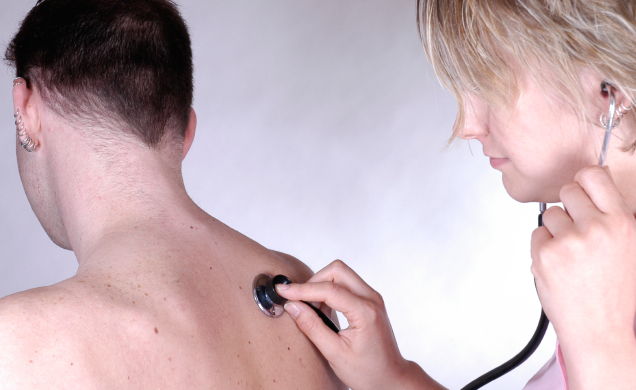Finding a GP

The GP, the local doctor, is the first point of contact when you are ill or want health advice.
As well as doctors, many local GP practices have a team including practice nurses, sometimes counsellors and other health professionals. GPs treat many problems themselves or can refer you to a specialist. GP practices also provide information, offer advice on smoking, exercise, diet etc, run clinics, offer health-checks, give vaccinations, take blood and carry out simple operations. So you can get most of what you need done without going near a hospital.
You can use our website to find a GP near you.
How do I register with a GP?
To register just go along and ask if they're taking new patients that easy. You'll have to
- live nearby
- fill in a form (called a GMS1 if you want to see one)
- give your name, address and date of birth
If you already know your NHS number or have an NHS medical card, tell them - otherwise, don't worry.
The practice should give you a leaflet explaining what services they offer. When choosing a GP you might want to think about:
- how easy it is for you to get to
- parking or public transport
- opening hours (many surgeries are now open outside 'ordinary' working hours)
- appointment system - how does it work, what will happen if you need to see someone urgently, can you see a male or female doctor if you want, are there telephone appointments, online services (such as booking appointments and repeat prescriptions)
- the atmosphere and the friendliness of the staff
How do I change GP?
You can change GP, just by going along to another GP practice and asking to register. You don't have to give a reason.
What about pharmacies?
The NHS is trying to encourage greater use of pharmacies under a scheme called Pharmacy First. Try the pharmacy for:
- Sinusitis (for patients aged 12 years and over only)
- Sore throat (aged 5+)
- Earache (aged 1-17 years)
- Infected insect bite (aged 1 year+)
- Impetigo (aged 18 years+)
- Shingles (aged 18 years+)
- Urinary tract infections (women aged 16 to 64)
Where do I find out more?
- More information from the NHS
- Royal College of GPs booklet: It's Your Practice
|
The Men’s Health Forum need your support It’s tough for men to ask for help but if you don’t ask when you need it, things generally only get worse. So we’re asking. In the UK, one man in five dies before the age of 65. If we had health policies and services that better reflected the needs of the whole population, it might not be like that. But it is. Policies and services and indeed men have been like this for a long time and they don’t change overnight just because we want them to. It’s true that the UK’s men don’t have it bad compared to some other groups. We’re not asking you to ‘feel sorry’ for men or put them first. We’re talking here about something more complicated, something that falls outside the traditional charity fund-raising model of ‘doing something for those less fortunate than ourselves’. That model raises money but it seldom changes much. We’re talking about changing the way we look at the world. There is nothing inevitable about premature male death. Services accessible to all, a population better informed. These would benefit everyone - rich and poor, young and old, male and female - and that’s what we’re campaigning for. We’re not asking you to look at images of pity, we’re just asking you to look around at the society you live in, at the men you know and at the families with sons, fathers and grandads missing. Here’s our fund-raising page - please chip in if you can. |


